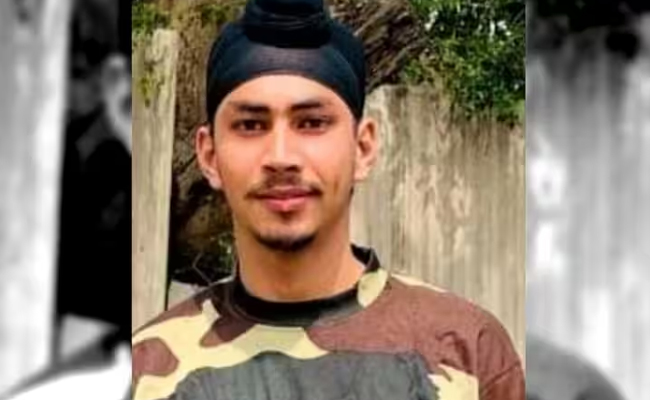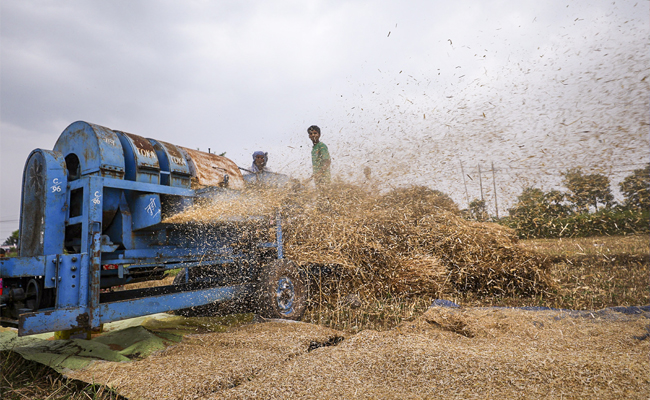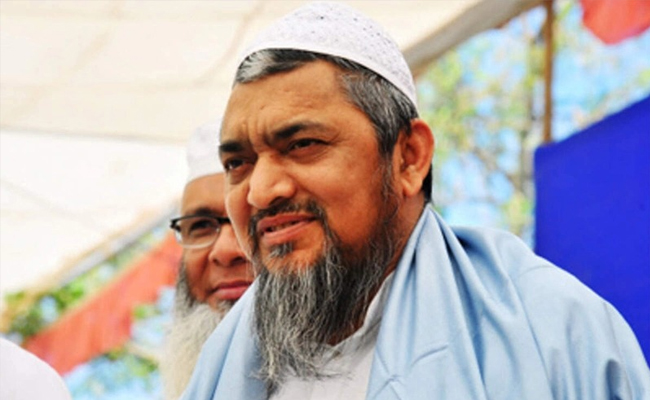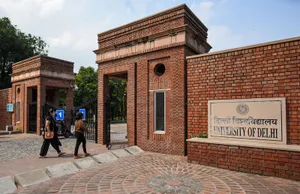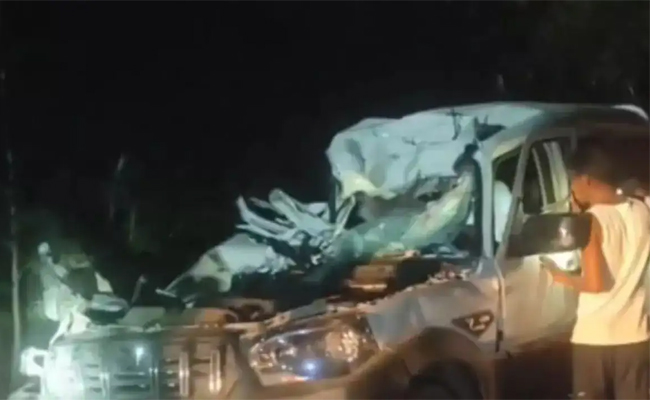New Delhi (PTI): The Army has said that Agniveer Amritpal Singh committed suicide by shooting himself while on sentry duty and that military honours were not extended to his funeral as deaths arising out of self-inflicted injuries are not given such honours.
The Army, on Sunday, asserted that it does not differentiate among soldiers based on whether they joined the force prior to or after the implementation of the Agnipath scheme.
There were allegations that the military honours were not extended to Singh's funeral as he was an Agniveer soldier.
The Army's Nagrota-headquartered White Knight Corps on Saturday said that Singh died while on sentry duty in Rajouri sector due to a self-inflicted gunshot injury.
In a statement on Sunday night, the Army said there has been some "misunderstanding and misrepresentation" of facts related to the unfortunate death of Singh.
"It is a grave loss to the family and the Indian Army that Agniveer Amritpal Singh committed suicide by shooting himself while on sentry duty," the Army said.
"In consonance with the existing practice, the mortal remains, after conduct of medico-legal procedures, were transported under Army arrangements along with an escort party to the native place for the last rites," it said.
The Army said the Armed Forces do not differentiate between the soldiers who joined prior to or after the implementation of the Agnipath scheme as regards entitled benefits and protocols.
"Unfortunate instances of death arising out of suicide/self-inflicted injury, irrespective of the type of entry, are accorded due respect by the Armed Forces along with deep and enduring empathy with the family," it said.
"Such cases, however, are not entitled to military funerals as per the extant Army Order of 1967, in vogue. Policy on the subject has been consistently followed ever since, without any discrimination," it said.
"As per data held, there has been an average yearly loss ranging between 100-140 soldiers since 2001 where deaths occurred due to suicides/self-inflicted injuries, and military funeral in such cases was not accorded," the Army said.
It said the disbursement of financial assistance and relief as per entitlement is given due priority, including immediate financial relief for conducting funerals.
"Such unfortunate instances of loss bear heavy on the family and the Forces as a fraternity. During such times, it is important and incumbent on the society to uphold the respect, privacy and dignity of the family while empathising with them in their moment of grief," the Army said.
"Armed Forces are known for adherence to the policies and protocols and will continue to do so as hithertofore. The Indian Army requests support of all sections of the society while it follows its established protocols," it said.
Let the Truth be known. If you read VB and like VB, please be a VB Supporter and Help us deliver the Truth to one and all.
Suchetgarh (J-K) (PTI): Farmers living along the nearly 200-km-long International Border in Jammu and Kashmir are racing against time to complete the harvest process amid heightened tension following the Pahalgam terror attack.
In the three districts of Jammu, Samba, and Kathua, about 1.25 lakh hectares of agricultural land falls within the shelling range of Pakistan.
Villages like Treva, Mahashe-de-Kothe, Chandu Chak, Gharana, Bulla Chak, and Korotana Kalan are witnessing a flurry of activity, with families working day and night to finish harvesting, dry the grain, and pack it for delivery to mills.
While over 90 percent of the wheat and other crops have been harvested, the process of harvesting the rest, packaging them and sending them to mills remains.
“We are racing against time to complete harvesting,” Santosh Singh, a 50-year farmer from Treva village in the Arnia sector said, adding “there is very little time left.”
Treva, located just 1.5 km from the border, is directly under threat from Pakistan Rangers.
Since the April 22 Pahalgam attack that left 26 people dead, the farming community in Treva is anxious and authorities have responded with urgency.
"An alert has been sounded. The tehsildar has arranged 20 harvesters to speed up the harvesting process. Ninety-five percent of the harvesting has already been completed in these belts,” another farmer from Treva, Rakesh Kumar told PTI here.
“We live in a danger zone. Every time shelling starts, we face death and destruction", he said.
Radhika Devi, who belongs to a farmers' family of village Suchetgarh, said her family had packed over 300 bags of wheat in just a few days.
“It is an emergency. Mill owners are paying well and are quickly ferrying the bags to safer areas.”
Tarika Devi of Korotana Kalan echoed the urgency. “We were alerted after the Pahalgam massacre. Now that most of the harvesting is over in our belt, we are rushing to stock the produce. Shelling could resume at any time.”
Amid the heightened tension, finding labour has become a challenge.
“Labourers from Bihar and Uttar Pradesh, who usually help us during harvesting, have refused to work in the fields under these hostile conditions,” Kuldeep Kumar, a farmer from Suchetgarh, said.
The agricultural stretch from Paharpur in Kathua district bordering Punjab to Chicken’s Neck in Jammu district remains vulnerable, with thousands of families living within five km of the border constantly under threat.
Chandu Chak village farmer Sardar Teg Singh said, “The fear is constant, but we have become used to it. This time, we are better prepared. Not only can we save our lives and livestock, but we are also managing to save our crops—something we couldn’t always do in the past.”
According to the Basmati Rice Growers Association (BRGA) of R S Pura, nearly 1 to 1.25 lakh hectares of land, mostly known for world-class Basmati rice, is routinely impacted by cross-border shelling.
Although India and Pakistan agreed to a renewed ceasefire in February 2021, the fragile peace has come under fresh strain after the Pahalgam terror strike.
The fear gripping border residents today is reminiscent of the 2021 period, when intense shelling forced mass evacuations and destruction of property and cattle from areas along the IB.
"We feel it would be worse than the 2021 shelling and firing. It is likely to be war, which we witnessed in 1971. We are better prepared this time. We will fully support our troops bravely from our villages", 80-year-old Faqir Chand of Mahashe-de-Kothe village said.
For the farmers of Jammu’s border belt, the harvest season, usually marked by celebration and relief, is now one of anxiety, urgency, and survival.

